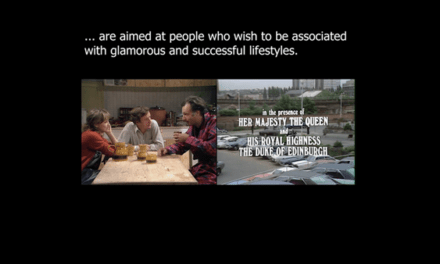As Dhoest and Mertens (2013) note, when glocalising a text, dialect and accent are key elements of that form of adaptation. Though they were referring to the Flemish version of Ugly Betty, the glocalised telenovela par excellence, accent can be used and/or recognised even outside of glocalised adaptations. To that end, I shall turn to a forgotten gem (in my view, anyway) of late 2000’s broadcast television, the series Eastwick (ABC 2009).
For those unfamiliar with the series, it focused on three women in the (fictitious) New England town of Eastwick, artist Roxie (Rebecca Romijn), nurse Kat (Jamie Ray Newman) and journalist Joanna (Lindsay Price), all of whom begin to manifest magical powers in the first episode. Helping(?) them to develop their abilities over the course of the series’ truncated thirteen-episode run is the mysterious, seductive and possibly immortal New York industrialist Darryl van Horne (Paul Gross, whose work on Due South and Slings and Arrows I have blogged about previously). If this premise sounds familiar, the film The Witches of Eastwick (1987, dir. Miller) was an adaptation of the novel by John Updike of the same title. In the film, Daryl van Horne (Jack Nicholson) – a different spelling from the series – is the Devil and is trying to father children with each of the women. While the televised van Horne certainly has demonic connotations, including a fierce black dog and associations with lust, wealth, power, and other things connected with the Judeo-Christian iteration of sin,[1] since the series ended after only thirteen episodes it is unclear what exactly van Horne’s motivations and/or goals were.
So far, so cancelled-too-soon.
While there are any number of approaches one could take to studying this series, I want to return to one of my usual wells and discuss Canadianness. In the blog linked above on Due South, I noted that embodied national identity can convey national identity/-ties onto texts, giving the example of Gross’ Canadianness and how that functioned with regard to conveying or enhancing the series’ Canadianness. In this blog, I want to focus specifically upon accent, which is a critically important but often overlooked aspect of embodied identity in the context of media representation, Dhoest and Mertens (2013) referenced above excepted. Because of the production context and changes which occur over the course of the series’ run, Gross’ vocal performance and other embodied aspects of his national identity which can (though do not necessarily have to) be conveyed onto his character are particularly evident as well as potentially complex. As such, Eastwick is a particularly good example to analyse.
Initially, Gross uses a faux-New York accent and a deeper register, presumably to differentiate his character from those he had previously played, though both characteristics fade as the series progresses with his Canadian accent marking him out as distinct from the other, American-accented characters. In their qualitative study on accent discrimination, de Souza et al (2016) show empirically that accent discrimination is stronger in those who are ‘prejudiced,’ though that term is poorly defined in their paper.[2] While I am not arguing that Eastwick’s audiences are somehow prejudiced against Canadians in general or Gross in particular, any paratextual awareness of the film and that Gross’ character has the same name, albeit with a different spelling, as the Nicholson’s Devil/van Horne could function to similarly make Gross’ Canadian accent subconsciously or unconsciously exacerbate the character’s Otherness. While accent recognition is, of course, hit and miss – I found this in my dissertation work, as did Leach et al (2016) in their study of Northern English accents – the frequent points of comparison as van Horne interacts with the various other characters would at least allow for a recognition of his accent as being different to those around him. For those audiences familiar with Gross from Due South in particular (Gray 2010 on intertextual casting) and the connotations of Canadianness and progressiveness, justice or other idealised interpretations (Bury 2005, cf Beattie 2020), his accent increases the character’s ambiguity.
That van Horne is ostensibly from New York City but Gross’ attempted use of a New York accent quickly fell by the wayside again can connote duplicity and Otherness. That said, it can also be read as intertextual; i.e., a Canadian actor pretending to be American without altering their accents is a hallmark of Due South and other Canadian-shot, American-set series.[3] This stands as both an example of the different ways in which a character and their actor can be read based upon paratextual or intertextual awareness of the audience but also illustrates how those connotations can function with regard to national identity. It is important to note however that van Horne’s accent and vocal register move toward Gross’ own as the character becomes more integrated within the women’s lives and as he gains a commensurate amount of nuance and depth. This includes sympathetic traits such as being protective towards Roxie’s daughter Mia (Ashley Benson) and being targeted for murder by several other characters who also try and kill Joanna and Kat at various points. Given that Fraser from Due South was positioned as ‘good’ (albeit flawed) which can be tied to the idealised Canadianness Bury (2005) in particular notes, bringing van Horne’s vocal performance from its initial sound to one which evokes Fraser’s enhances this part of the reading. Conversely, however, for those who simply hear the voice change and the accent move to one which is different to those around it, the reading can become more sinister (i.e., the Othering of the accent connecting to or paralleling the film van Horne being the Devil or at least the change connoting duplicity).
The fact that accent is a key indicator of (sub)national identities with attendant connotations is not particularly revelatory, of course. What is important, however, is to understand how such embodied national identity/-ties can be utilised and interpreted by audiences to convey different shades of meaning. While there is no way to know how intentional any of this was on the part of the various production team-members, what this blog has shown is that it is entirely possible that there was a deliberate engagement on the part of the production team with the connotations of idealised Canadianness, of Gross himself and his mediation and representation of idealised Canadianness from Due South and/or a deliberate engagement with the film as a paratext implying duplicity on van Horne’s part. If so, that use of embodied connotation with regard to accent would be devilishly clever.
Dr Melissa Beattie is a recovering Classicist who was awarded a PhD in Theatre, Film and TV Studies from Aberystwyth University where she studied Torchwood and national identity through fan/audience research as well as textual analysis. She has published and presented several papers relating to transnational television, audience research and/or national identity. She is suddenly an independent scholar. She has worked at universities in the US, Korea, Pakistan, Armenia, Ethiopia and for a brief time in Cambodia. She can be contacted at tritogeneia@aol.com.
Notes
[1] Arguably the Miltonian iteration of Satan as a handsome prince (of darkness) can be read in this as well; in series one and two of Due South, Gross’ character Fraser is frequently the object of attraction and occasional inappropriate behaviour by various women, potentially connecting these character traits to van Horne as well. Gross’ van Horne spends a great deal of screen time in varying states of undress, also implying that the expected audience would be attracted to men.
[2] ‘…a prejudiced attitude against the social groups to which the target belongs’ (de Souza et al 2016: 609) is how they are defining someone being ‘prejudiced’ in their study.
[3] These include many science-fiction series from the late 90s and early 00s, including, but not limited to, The Sentinel (syndicated, 1996-1999), First Wave (Syfy, 1998-2001), Andromeda (syndicated, 2000-2005) and the Stargate franchise (Showtime 1997-2000; Syfy 2000-2011).
References
Beattie M (2020). ‘Like an American but without a gun’?: Canadian national identity and the Kids in the Hall. Participations 17(2): 3-24. https://participations.org/17-02-02-beattie.pdf
Bury R (2005). Cyberspaces of Their Own: Female Fandoms Online. New York: Peter Lang.
de Souza L E C et al (2016). The legitimizing role of accent on discrimination against immigrants. European Journal of Social Psychology 46(5): 609-620. doi: 10.1002/EJSP.2216. Openly available at https://core.ac.uk/display/78465498
Dhoest A and Mertens M (2013). Ugly Betty, Flemish Sara: Telenovela Adaptation and generic expectations. In McCabe J and Akass K (eds). TV’s Betty Goes Global: From Telenovela to International Brand. London: IB Tauris, pp. 99-113.
Gray J (2010). Show Sold Separately: Promos, Spoilers, and Other Media Paratexts. NY: NYU Press.
Leach H et al (2016). Perceptual dialectology in northern England: Accent recognition, geographical proximity and cultural prominence. Journal of Sociolinguistics 20(2): 192–211. doi: 10.1111/josl.12178





